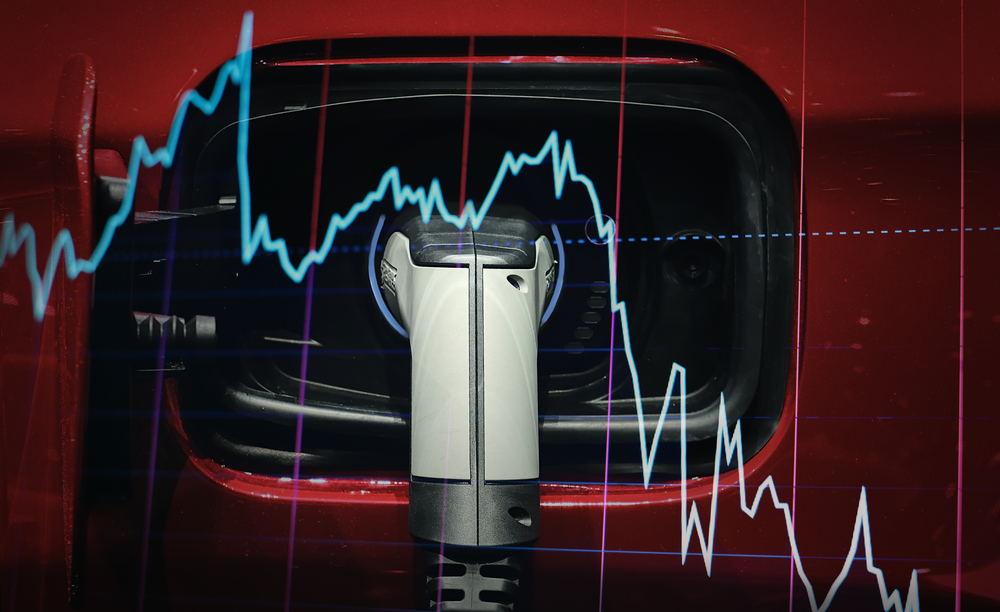Warren Buffett began investing in Chinese electric vehicle (EV) maker BYD back in 2008.
His decision took the financial media by surprise, especially since he’d chosen to invest in a Chinese innovator instead of an American EV company like Tesla Inc. (Nasdaq: TSLA).
He held the position through 2022 when he began gradually selling off shares.
Earlier this week, Berkshire Hathaway announced that it would be selling another 1.3 million shares, decreasing Buffett’s stake in the company from 7% to 6.9%.
It’s not a very significant move in the grand scheme of Buffett’s holdings, but I couldn’t help but wonder … “Why now?”
After all, the stock has been a phenomenal performer for Buffett.
BYD shares rocketed up more than 2,000% from 2008 (when Berkshire Hathaway invested in BYD) to its record high in 2022 — when Berkshire Hathaway started selling some of its stake.
But then I thought back to my article from last week on Tesla’s trials and the sinking share of new vehicle sales that are going to EVs.
EV sales are down — to the tune of 15% quarter over quarter.
I started to wonder whether the Oracle of Omaha saw something in our future that the rest of the investing world had yet to recognize.
So I dug deeper…
I evaluated the actual EV buying process…
I also uncovered some interesting things about EV pricing that may lead to a greater trend in EV sales in the near future.
Is Straightforward a Good Thing?
If you’re in the market for a new EV, there is one thing you know for sure: How much you will pay.
The sticker price on that shiny new Model 3 you’re eyeballing is exactly what you will pay (with taxes and other fees on top of it). That’s just how the company operates.
This straightforward pricing used to be a big selling point for Tesla and other EV automakers as it provided a hint of transparency… what you see is what you get, and this is the price you pay.
But in reality, this pricing model is more a necessity for Tesla than a luxury for the buyer…
EVs are expensive to produce, so companies like Tesla have invested a lot of capital in lithium-ion batteries, charging capabilities and internal electronics.
That means the margins for EVs are much smaller than those of traditional internal combustion vehicles — giving Tesla and other EV makers less wiggle room in sales prices.
Despite government incentives and EV automakers trying to slash prices, EVs are the most expensive class of cars in the U.S.:
Because they are expensive to produce and there is no price negotiation, EV transaction prices averaged just over $57,000 in May 2024, about $3,000 more than luxury cars.
Since January, the average transaction price of an EV in the U.S. has increased by more than 10%.
So while EV buyers have the luxury of knowing exactly what they’ll pay … they’re also confronted with a stiff premium to drive their new car off the lot.
And that added expense seems to be deterring new buyers.
If only there were a better approach than the existing “no negotiation” strategy…
The “New” Way to Sell EVs
This week, EV start-up Polestar Automotive Holding (Nasdaq: PSNY) announced it was reverting to the traditional way of selling its cars by allowing customers to negotiate prices.
It plans to unveil this model in select European, Asian and South American markets next year.
Investors love the idea so much that PSNY’s stock price popped more than 20% during midday trading on Monday.
The reason for the change is simple: It allows Polestar to expand its retail reach.
It might make it easier to swallow buying a Polestar 2 — which has a suggested retail price of around $50,000 on the low end.
Polestar’s switch isn’t innovative, and it’s no guarantee of future success…
EV start-up Fisker Inc. (OTC: FSRN) moved from direct-to-consumer to a dealership model at the first of the year.
The end result was that the company burned through all of its cash due to a lack of sales.
Fisker filed for bankruptcy on Monday, joining Lordstown Motors (OTC: NRDE) and bus manufacturer Arrival as financial casualties in a volatile EV market.
Bottom line: There’s no way to tell yet if Polestar’s move to the more traditional “haggle” way to sell its EVs will translate to better sales.
If Fisker Inc. is any indication, it may not matter.
But a few things stand out:
- EV sales are dragging enough in the U.S. and Europe to where at least some companies want to buck the trend and try price negotiations.
- Given the trending EV prices, something has to change for mass appeal to take over.
If something doesn’t change in a hurry, Warren Buffet won’t be the only investor paring their massive stakes in EV companies.
Until next time…
Safe trading,

Matt Clark, CMSA®
Chief Research Analyst, Money & Markets




